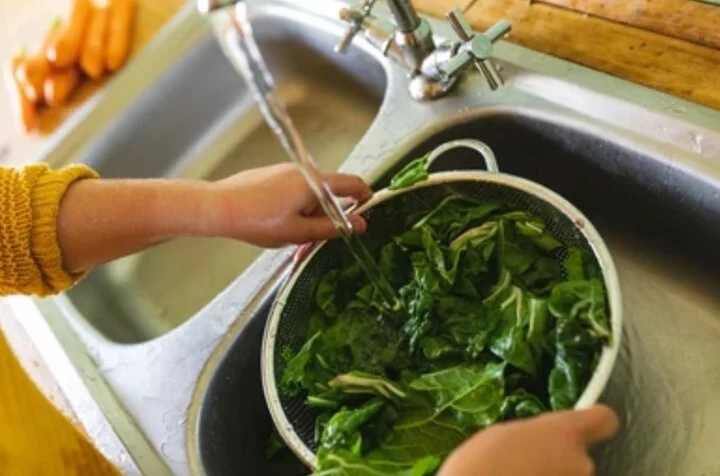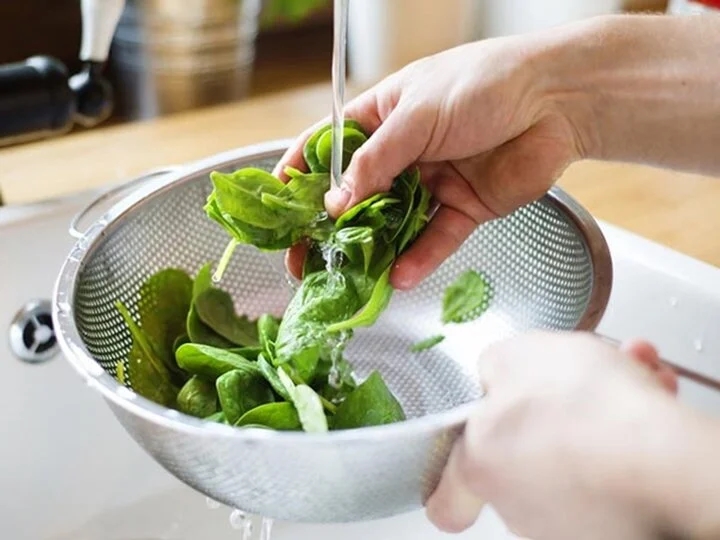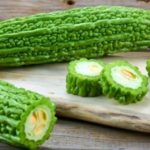Soup is a staple in family meals, and vegetable soup is particularly popular. Not only the cooking process but also the preparation steps can affect the taste and nutritional quality of the dish.
Should you rub vegetables before cooking?
It is a common practice to rub vegetables before cooking them in soup. The main purpose of this action is to make the vegetables softer, easier to cook, and reduce bitterness (if any). For vegetables with large and slightly tough leaves, gentle rubbing also helps to make them more compact and easier to put into the pot, while also helping the vegetables absorb spices better.
Although rubbing vegetables has certain benefits, many people also question the effect of this action on the nutritional value and taste of the vegetables.
According to experts, one of the biggest disadvantages of rubbing vegetables before cooking is the loss of important nutrients. Vietnamnet newspaper quoted Dr. Nguyen Trong Hung, Head of the Examination and Adult Nutrition Consulting Department at the National Institute of Nutrition, as saying that rubbing vegetables to a pulp can cause a significant loss of vitamins, especially vitamin C. When vegetables are crushed, this vitamin is lost, leaving only the fiber.

Should you rub vegetables before cooking soup? (Photo: Shutterstock)
Rubbing vegetables too much can alter their natural flavor. When vegetables are crushed, the chlorophyll and nutrients inside the leaves are easily released, causing the flavor of the vegetables to be reduced or altered, becoming less appealing during cooking.
If you rub or wash the vegetables too vigorously, they will easily become mushy and lose their original shape when cooked. This not only affects the aesthetics of the dish but also makes the vegetables less appetizing.
Considering the above advantages and disadvantages of rubbing vegetables before making soup, housewives can make a choice depending on their priorities and the type of vegetable. If preserving the nutritional content is the top priority, you should avoid rubbing vegetables before cooking soup or stir-frying.
For old and tough vegetables, you can consider gently rubbing them to soften them, but be careful not to rub too hard.

If you want to retain the best possible nutrition, you should wash the vegetables thoroughly and not rub them too hard before cooking. (Photo: Eatright)
Instead of rubbing the vegetables before cooking, you can cut them into small pieces if you think this type of vegetable is difficult to cook tender. Note that you should only cut after washing them thoroughly to avoid losing nutrients and causing contamination.
How to preserve the nutrition of vegetable soup and broth
To minimize nutrient loss, cook the soup quickly over medium heat to better preserve the nutrients in the vegetables. Avoid cooking for too long or at too high a temperature, as this can also cause a loss of vitamins and minerals.
You can keep the vegetable broth to use as a soup base or add to your soup. Vegetable broth contains many vitamins and minerals that are released during cooking, so you can maximize the nutrition from the vegetables.
Should meat broth be used to boil vegetables? The answer is yes, because meat broth contains many nutrients, namely fat and protein – factors that make the broth sweet. However, it is important to note that both meat and vegetables need to be cleaned thoroughly before cooking, as meat bought from the market often has impurities and dirt on the surface. If not cleaned properly, there is a risk to health, and it will also reduce the palatability of the dish.
When boiling meat, skim off the excess fat that rises to the top to clarify the broth. You can add a little seasoning powder or seasoning paste to enhance the flavor of the meat. After removing the meat, use the meat broth to boil vegetables or cook soup, seasoning to taste.
According to VTC News




































